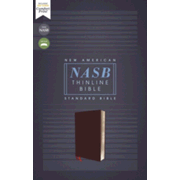The Epistle of Paul to the Colossians focuses on the supremacy and sufficiency of Jesus. Paul addresses three major theological issues in his letter:
- the supremacy of Jesus,
- the redemptive work of the cross,
- and Christian ethics.
God/Jesus is Eternal & Saves Believers
In Colossians 1:19, 20, Paul explains that Jesus is eternal, just as God is eternal, and all created things were created by Him, and through Him, and for Him. After describing Jesus as absolutely supreme, Paul then explains that it was His sacrifice which allowed the Colossians, and all saved believers, to be reconciled to God.
The word “fullness,” in verse 19, translates the ancient Greek word “pleroma.” It was a technical term denoting the totality of the Divine powers and attributes. It was really just another way to say that Jesus is truly God.
The ancient Greek word for “dwell” (vs. 19) is used here in the sense of a permanent dwelling. There is an entirely different word used for the sense of a temporary dwelling place. Paul wanted to emphasize the idea that Jesus was not temporarily God, but is permanently God.
The fullness has been put into Jesus Christ. Not into a church; not into a priesthood; not into a building; not into a sacrament; not into the saints; not into an intermediator, not into a method or a program, but in Jesus Christ Himself. It was put into Him as a “distribution point” so that those who wanted more of God, and all that He is, could find it in Jesus Christ.
Because God chose to speak through His Son (Colossians 1:19), we can expect to find the most focused manifestation of God’s character in Jesus. Not only does Jesus make the Father known, He also reveals the meaning and significance of God the Father. 1
Notice where the peace was made. We don’t make our own peace with God, but Jesus made peace for us through His work on the cross (vs. 20).
However, we should not regard the blood of the cross in a superstitious manner. It is not a magical potion, nor is it the literal blood of Jesus, literally applied that saves or cleanses us. If that were so, then His Roman executioners, splattered with His blood, would have been automatically saved, and the actual number of molecules of Jesus’ literal blood would limit the number of people who could be saved. The “blood of His cross” speaks of the real, physical death of Jesus Christ in our place, on our behalf, before God. That literal death in our place, and the literal judgment He bore on our behalf, is what saves us.
Jesus’ mission was to reconcile or put back together what sin and Satan had broken. He came to heal the breach between heaven and earth.
Since God has been reconciled by the death of His Son, man is now reconciled to God. In the largest sense, God has reconciled to Himself, not only man but also all things in heaven and on earth. 2
God is the prime mover in reconciliation. 3
Universalism
Jesus’ atoning work is full and broad. Yet we should not take Colossians 1:20 as an endorsement of universalism or that salvation is universal.
Some have used Colossians 1:20 to argue for universalism meaning that all rebel creatures, including the devil will be reconciled to God in the end and there will be no eternal hell.
Many texts seem to contradict universalism. Chief among them is John 3:16 – “For God so loved the world, that He gave His only begotten Son, that whoever believes in Him shall not perish, but have eternal life. (NASB).” Scripture speaks of an eternal hell and makes clear that only believers will be saved. 4 Based simply on numbers, there are considerably more passages teaching that some will be eternally lost than that all will be saved. 5
Note that Colossians 1:19-20 does not say that all will be saved and restored to fellowship with God. It speaks only of setting right the disrupted order of the universe, the bringing of all things into subjection to God. 6
______________Affiliate link – SHOP: _______________
_This ad is for my favorite version of The Bible _
_____but click on it to go to the whole store______


NASB Comfort Print Thinline Bible, Red Letter Edition–bonded leather, burgundy (click here)
By Zondervan
The beloved 1995 Edition of the New American Standard Bible is now easier to read with Zondervan’s exclusive NASB Comfort Print® typeface. This edition of the NASB Thinline Bibles is available in a variety of sophisticated designs in a portable, easy-to-read format.
- The full text of the New American Standard Bible, 1995 Edition
- Exquisite, durable covers
- Less than one inch thick
- Double-column format
- Presentation page
- Two satin ribbon markers
- Words of Christ in red
- Exclusive Zondervan NASB Comfort Print 9 point type
Features:
____________________________________________
In conclusion, consider what the Daily Bread email message sent on 6/14/2023 says,

Colossians 1:19, 20 – For it was the Father’s good pleasure for all the fullness to dwell in Him, and through Him to reconcile all things to Himself, having made peace through the blood of His cross; through Him, I say, whether things on earth or things in heaven. (NASB)
Notice where the peace was made. We don’t make our own peace with God, but Jesus made peace for us through His work on the cross.
“The blood of His cross” speaks of the real, physical death of Jesus Christ in our place, on our behalf, before God. That literal death in our place, and the literal judgment He bore on our behalf, is what saves us.
You Can Receive The Daily Bread, for FREE.
To receive the Daily Bread email messages, free on Mon., Wed., and Fri., in your email inbox, just fill in the form below or send an email, and ask to be added, to jmikeh@jmhowington.com
References:
- , pg. 121.
- Henry C. Thiessen (revised by Vernon D. Doerksen), Lectures in Systematic Theology (Grand Rapids, MI: Eerdmans, 1981), pg. 239.
- Stanley M. Horton, Systematic Theology, pg. 348.
- “NIV,” International Bible Society, The Holy Bible, New International Version, Study Bible (Zonderman Publishing House copyright 1973, 1978, and 1984.), pg. 1854.
- Millard J. Erickson, Christian Theology (Grand Rapids, MI: Baker Book House Company, 1985), pg. 1020.
- Millard J. Erickson, Christian Theology, pg. 1021.
